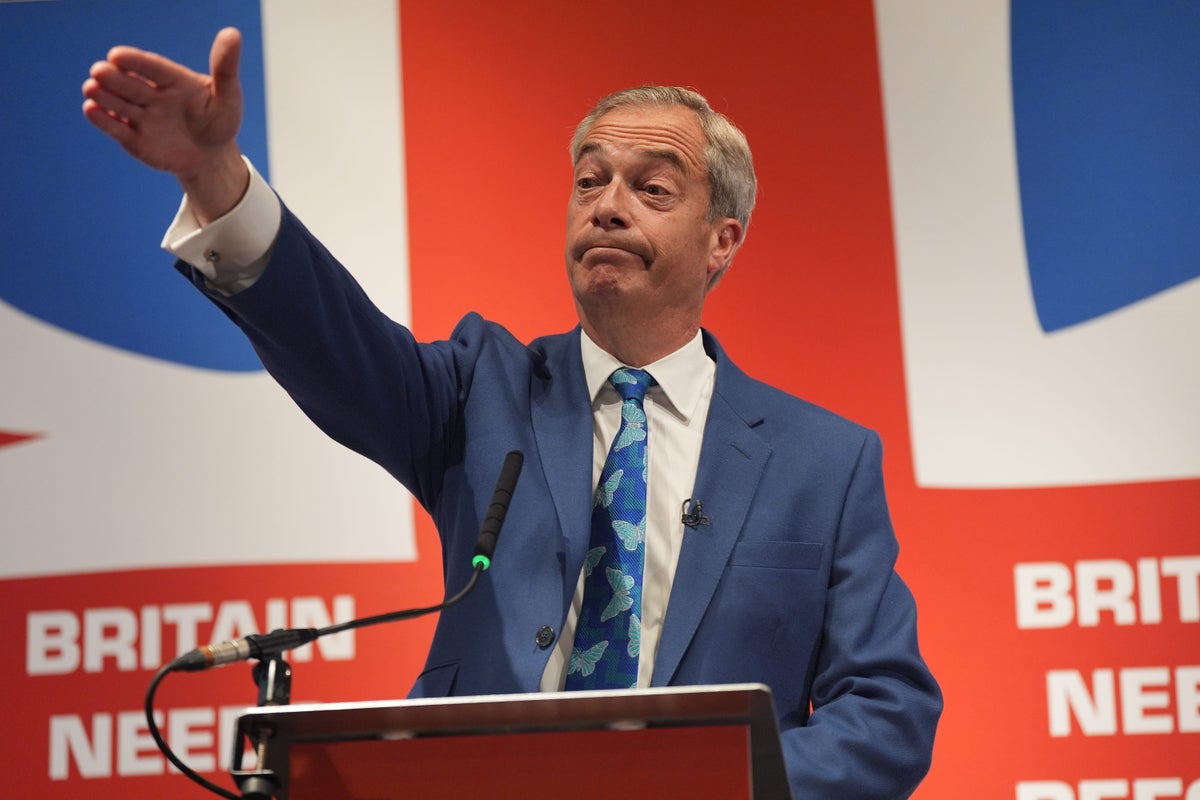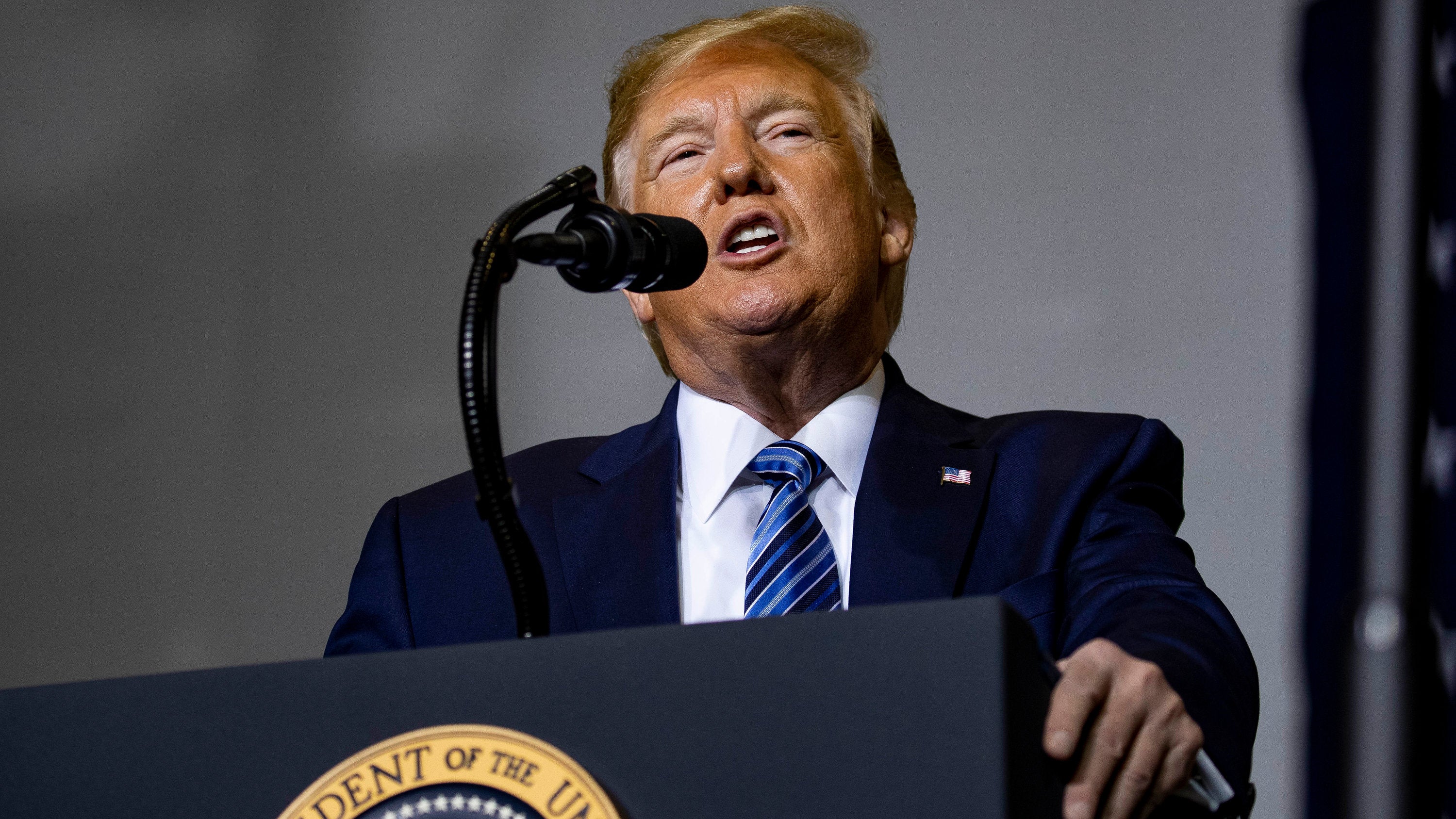Is Nigel Farage's Reform Party A Force For Change?

Table of Contents
The Party's Platform and Key Policies
The Reform Party, founded by Nigel Farage in 2019, positions itself as a populist, right-wing party advocating for significant changes across various policy areas. Its core ideology centers on a belief in reducing the size and scope of government, prioritizing individual liberty, and reclaiming sovereignty post-Brexit.
- Electoral Reform: The party advocates for electoral reform, pushing for a move away from the current first-past-the-post system towards an alternative system that they believe would better represent voter preferences. They haven't specified a particular alternative, leading to some ambiguity in their platform.
- Immigration Policies: The Reform Party holds a firm stance on immigration control, advocating for stricter border controls and a reduction in overall immigration levels. Specific policy details regarding points-based systems or other mechanisms remain less explicitly defined.
- Economic Policies: The party platform emphasizes lower taxes and reduced government spending. While details on specific tax cuts or spending reduction targets are limited, the general direction suggests a focus on fiscal conservatism.
- Brexit-related Policies: The Reform Party remains strongly pro-Brexit and advocates for a complete severing of ties with the European Union, going beyond the current arrangements. They push for a more independent trade policy outside the EU's influence.
- Environmental Policies: The Reform Party's position on environmental issues is less prominent in its current messaging. While not explicitly denying climate change, environmental policy isn't a central plank of their platform.
The impact of these policies, if implemented, could be significant. Lower taxes might stimulate economic activity but could also lead to reduced public services. Stricter immigration controls could impact the economy and society, while the long-term effects of their Brexit vision remain to be seen. A lack of detailed policy specifics makes assessing the potential impact challenging, hindering their ability to gain wider support.
Electoral Performance and Public Opinion
The Reform Party's electoral performance has been mixed. While achieving some success in local elections, securing council seats in several areas, their impact on national elections has been limited.
- Percentage of Votes Received: The party's share of the national vote in recent general elections has remained relatively low, although this is a common challenge for new parties.
- Number of Seats Won: The Reform Party has not yet won any seats in the House of Commons in national elections.
- Comparison to Other Parties: The party's performance pales in comparison to the established major parties, highlighting the significant challenge it faces in achieving widespread electoral success.
Public opinion polls reflect this limited success. While some polls show a small level of support, the Reform Party's popularity remains far below that of the main political parties. Negative media coverage and the perception of Mr. Farage's controversial political history undoubtedly impact public perception.
Impact on the Broader Political Landscape
Despite its limited electoral success, the Reform Party's influence on the broader political landscape should not be underestimated.
- Shifting the Political Agenda: The party has successfully brought certain issues, notably stricter immigration control and a more decisive Brexit approach, into the mainstream political debate.
- Influencing Mainstream Parties: Mainstream parties have, to some extent, responded to the Reform Party’s rhetoric by adopting some similar policies in an attempt to attract voters.
- Changing the Dynamics of the Political Debate: The Reform Party has injected a populist element into UK politics, challenging the dominance of established parties.
The Reform Party's potential as a kingmaker in future coalition governments remains questionable given their current level of support. However, their ability to influence the political agenda cannot be ignored.
Strengths and Weaknesses of the Reform Party
The Reform Party possesses certain strengths: Nigel Farage’s strong leadership provides clear messaging and a recognizable figurehead. Their focused policy positions on Brexit and immigration resonate with a specific segment of the electorate.
However, the party also faces significant weaknesses. Its limited membership and narrow appeal hinder widespread support. Internal conflicts and a lack of detailed policy proposals further undermine its credibility. The party's reliance on a single prominent leader also makes it vulnerable to any damage to his reputation.
Conclusion: Is Nigel Farage's Reform Party a Force for Change? A Final Verdict
While Nigel Farage's Reform Party has made some inroads in local elections and undeniably influenced the national political debate, it currently lacks the widespread support necessary to be considered a major force for transformative change in UK politics. Its impact is more noticeable in shaping the discourse than in achieving significant electoral gains. The party’s limited electoral success, coupled with its internal weaknesses and narrow policy focus, restricts its ability to fundamentally alter the political landscape. However, its continued presence and potential to act as a spoiler in future elections warrant close observation. To understand the Reform Party's impact further, engage with their policies, consider attending local meetings, and actively participate in discussions about its role in shaping the UK's future. Understanding the Reform Party’s influence is crucial for anyone seeking to grasp the dynamics of UK political change.

Featured Posts
-
 Iron Ore Falls As China Curbs Steel Output Impact And Analysis
May 09, 2025
Iron Ore Falls As China Curbs Steel Output Impact And Analysis
May 09, 2025 -
 Arsenal Ps Zh I Barselona Inter Polufinaly Ligi Chempionov 2024 2025 Prognoz I Analiz
May 09, 2025
Arsenal Ps Zh I Barselona Inter Polufinaly Ligi Chempionov 2024 2025 Prognoz I Analiz
May 09, 2025 -
 Senator Warner Trumps Tariffs Remain His Key Economic Strategy
May 09, 2025
Senator Warner Trumps Tariffs Remain His Key Economic Strategy
May 09, 2025 -
 Trois Hommes Agresses Sauvagement Au Lac Kir De Dijon
May 09, 2025
Trois Hommes Agresses Sauvagement Au Lac Kir De Dijon
May 09, 2025 -
 Elizabeth Arden Skincare Compare Prices At Walmart
May 09, 2025
Elizabeth Arden Skincare Compare Prices At Walmart
May 09, 2025
